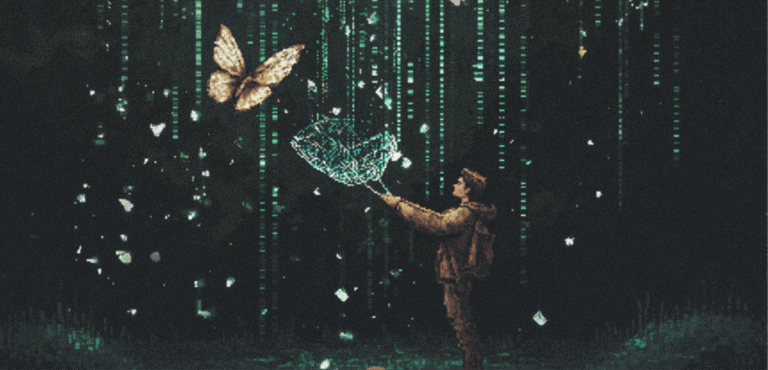
Software Freedom Day 2025: Why Open Source Still Matters
On 20 September, people gathered again for Software Freedom Day 2025. Some events were small, tucked away in classrooms. Others filled auditoriums or hackspaces. Different places, different styles, same idea. Celebrate free and open-source software and ask what it still means today.
Workshops ran, hackathons stretched into the evening, and talks sparked lively debate. The takeaway wasn’t complicated: open-source isn’t a relic. It’s the quiet backbone of technology we use every single day. So, let’s take a look around and see what happened this year.
A global celebration in action
This year’s Software Freedom Day global celebration stretched across continents, bringing local flavour to a global movement.
- In Berlin, the Free Software Foundation Europe joined VHS Friedrichshain-Kreuzberg to run a workshop on life after Windows 10, showing how GNU/Linux and free software provide alternatives.
- In Italy, the Free Software Foundation Europe (FSFE) hosted an online event on 18 September, connecting advocates and users from across the country.
- In Brussels, Hackerspace Brussels (HSBXL) hosted a full day of talks on open source, privacy, security, and open data.
- In Chitwan, Nepal, the Birendra Open-Source Club gathered students to share skills and stories.
- In Gaborone, Botswana, the University of Botswana opened its doors for a day of discussion on free software and digital opportunities.
Each event looked different, but together they showed how open-source cuts across borders and communities.
Why open source still matters?
The weekend reinforced a simple truth. Open source isn’t fading away; it’s everywhere. Most people just don’t see it.
Your Android phone is built on open-source foundations. The cloud servers that keep your favourite apps alive? They run on Linux. Programming languages like Python and Go are the invisible gears of modern AI research. Free to use.
This year’s events reminded us that open-source matters not because it’s nostalgic, but because it powers the everyday. And that makes protecting it more important than ever.
Community voices that stood out
What gave the Software Freedom Day community voices 2025 their strength was the mix of perspectives.
- Davin Baragiotta, CIO at Érudit, said open-source offers “independence and longevity through the ability to collaborate … and the transparency of the code and its documentation.”
- Suzanne Beth, Senior Research Coordinator at Érudit, felt free software “frees us from the confinement imposed by the hegemonic posture of dominant actors.”
- In Kenya, developers shared stories of building farming apps for smallholder communities, using open platforms to keep costs low and results adaptable.
- In Germany, FSFE volunteers emphasised how moving away from proprietary software gives individuals and institutions more control over their digital lives.
Different voices, same message: open source is not just about code. It is about people, trust, and opportunity.
Open source in the digital economy
This year’s conversations highlighted just how deeply the open-source digital economy runs. From startups to global giants, modern business relies on it.
Think about Linux, the operating system behind most servers worldwide. Without it, the internet would collapse. Kubernetes, born at Google and now open-sourced, powers cloud infrastructure everywhere. Programming languages like Python, Rust, and Go? They’re open. Databases like PostgreSQL? Open too.
Even the tech giants dominating today’s market can’t escape open source. They profit from it, but they also rely on it. The tension between community ownership and corporate influence was a theme that surfaced again and again across Software Freedom Day 2025.
Lessons from awareness days
Alongside the main celebrations, smaller events such as Open-Source Awareness Day 2025 focused on education. These sessions are aimed at beginners, not experts. They helped ordinary people see how open source already touches their lives.
Key lessons surfaced repeatedly:
- Early exposure makes students confident creators, not just consumers.
- Local communities adapt global tools for specific needs, from farming to digital art.
- Transparency builds trust in technology, strengthening the wider digital economy.
It became clear that awareness is just as important as advanced innovation.
The hard conversations
Software Freedom Day wasn’t only a celebration. It was also a space for tough questions.
- Corporate influence: Should big tech firms have so much sway over open projects?
- Sustainability: How do we support maintainers who keep vital tools alive without burning out?
- Security: Can communities respond fast enough to vulnerabilities that ripple across millions of systems?
The answers weren’t easy. But raising these issues openly was exactly the point. This was not blind celebration. It was a reminder of why open source still matters and how fragile it can be.
Looking to the future
Technology is moving fast, AI, climate tech, quantum computing. And none of these fields can be built by a single company alone.
Open source is already shaping AI research, climate modelling, and health platforms. Researchers share code, tweak it, and improve it across borders. This openness speeds progress, reduces duplication, and lowers barriers for smaller players.
The message from this year’s events was simple: how open-source impacts global tech is only going to grow.
How people got involved?
Participation wasn’t just for coders. This year, people supported Software Freedom Day 2025 in all sorts of ways:
- Testing and promoting open-source tools like LibreOffice or GIMP.
- Attending local meet-ups, from school classrooms to city hackspaces.
- Contributing through translations, bug fixes, or small donations.
- Sharing their stories online, reminding friends that free software is more than a niche.
Every action, no matter how small, helped spread the message.
Distilled
As the celebrations wrapped up, one truth stood out. Software Freedom Day 2025 wasn’t about nostalgia. It was about relevance. The global events highlighted reach. The community voices gave heart. The conversations about the open-source digital economy proved its power. And the challenges kept the movement honest.
Open source is not just history. It is today’s invisible infrastructure and tomorrow’s promise. And that’s exactly why, after another year of reflection and celebration, Software Freedom Day still matters.